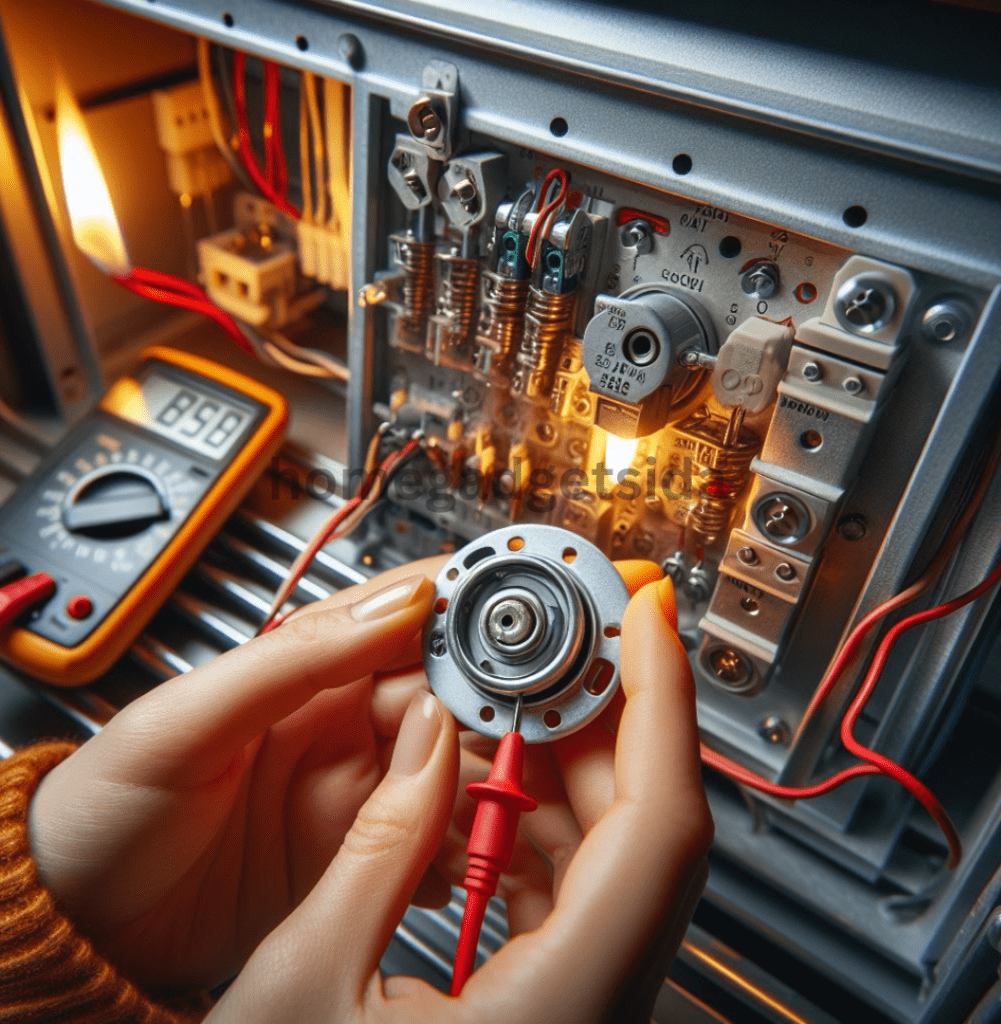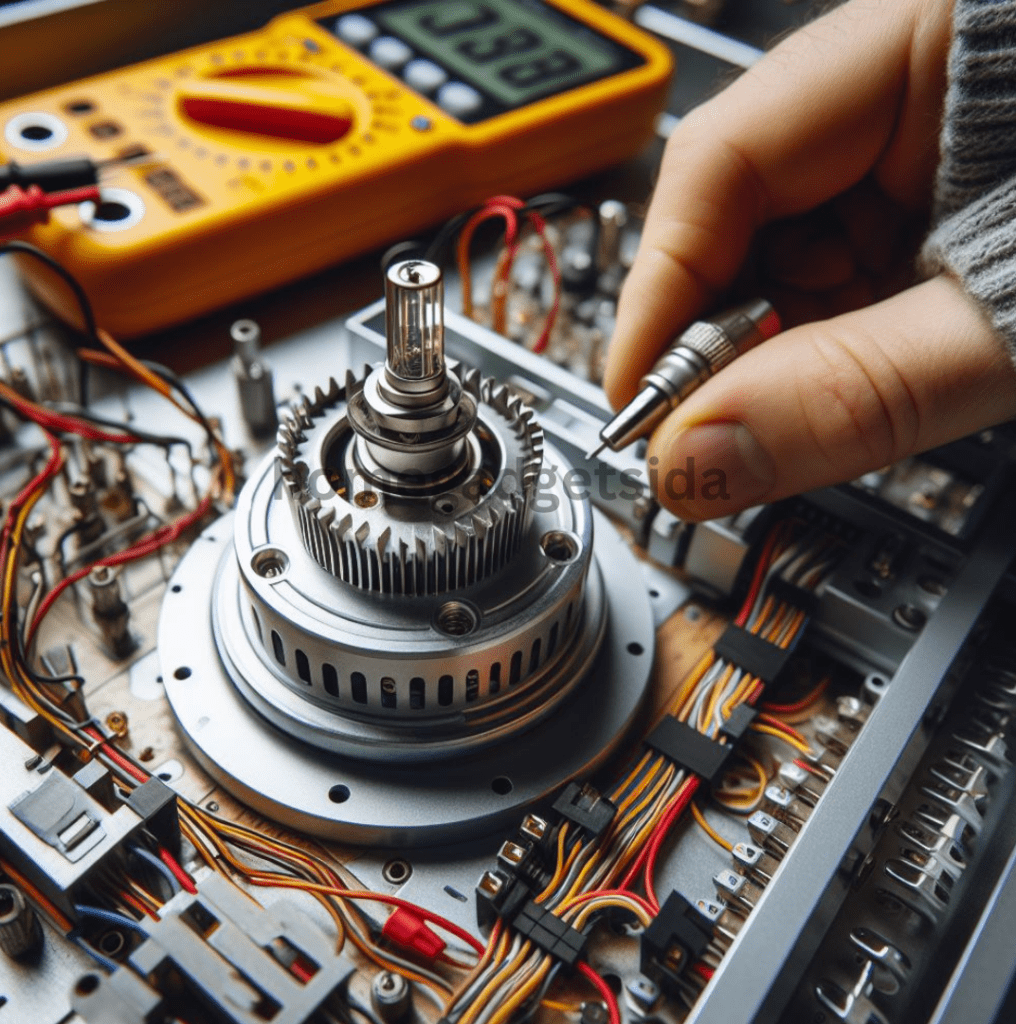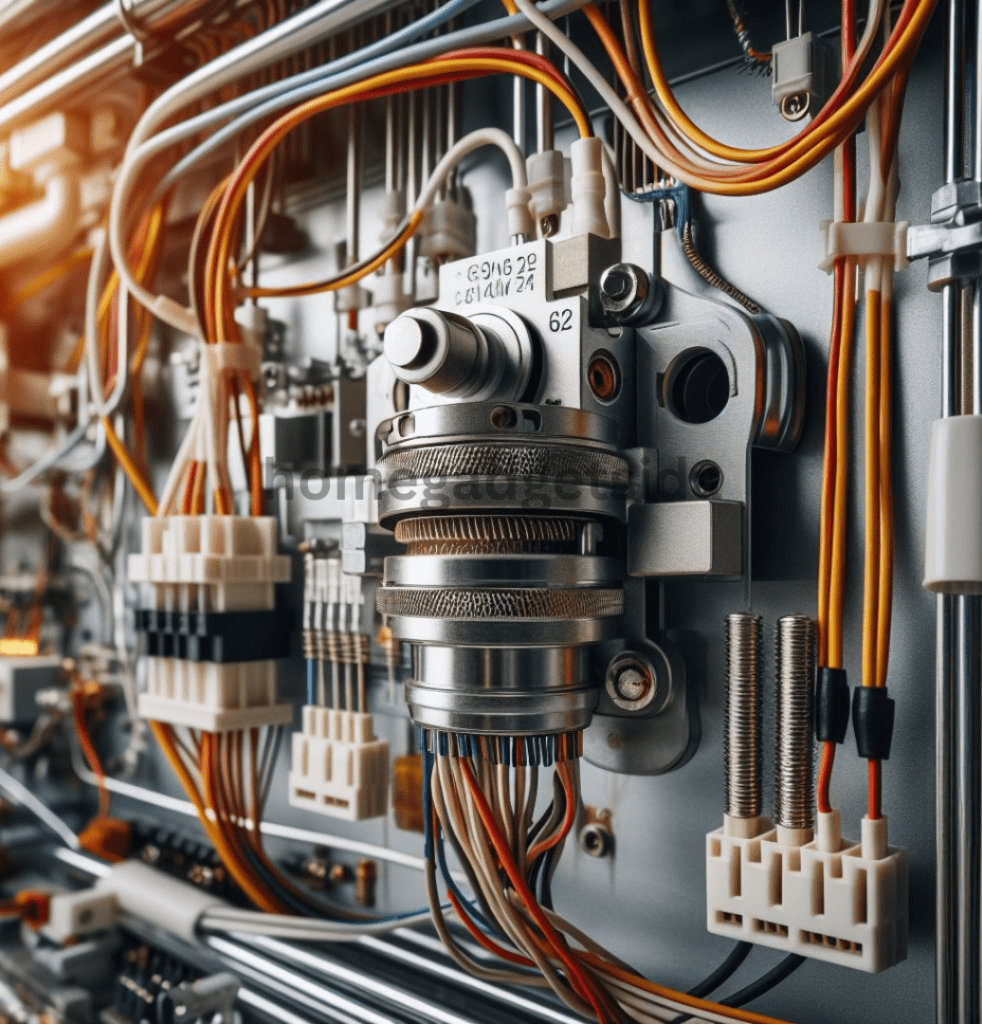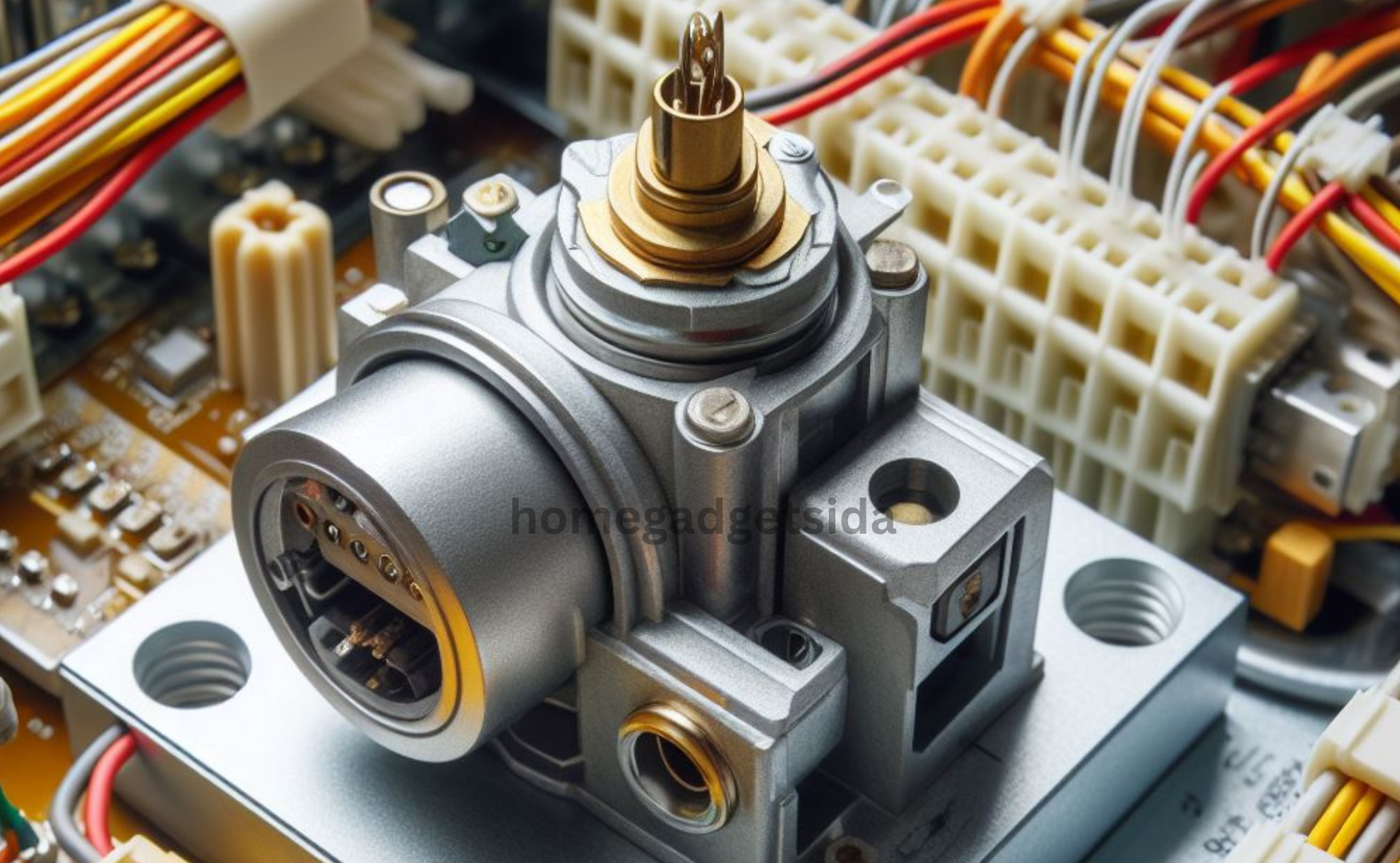What is Furnace Flame Sensor
Inside a house heater is a little component called a furnace flame sensor. It looks for signs of a heater fire. For safety, it’s crucial. It controls the heater’s gas supply timing. This puts out unwanted events like fires. It keeps homes secure and warm.
Say the heating in your house breaks out without warning. Would you consider buying a furnace flame sensor to keep your home safe? It guarantees that your heater operates only under safe conditions. Let us explore the workings of this small superhero and how it protects and keeps us warm.
The Furnace Flame Sensor is a superhero-like hidden component in your house heating. Despite its diminutive size, it serves a large purpose. It looks for a fire within your heater. It shields your house from harmful elements like fire. Thus, don’t forget to give thanks to the furnace flame sensor. The small hero within your heater, the next time you’re feeling toasty and comfortable.

Importance of Flame Sensors in Home Furnaces
Flame sensors are vital in residential furnaces. They protect us against fire. Things may go wrong in their absence. Like how our houses catch fire. Flame sensors track the flames in the furnace. They ensure that it burns at all times. The furnace gets cut off if there is no fire. Gas cannot enter as a result of this. It seems like we have a superhero keeping our houses safe.
Flame sensors act as our house protectors. They function quite well but without voice. Inside our furnaces, they resemble little investigators. They continuously inspect the flames. They promptly notify the furnace if something is amiss. Then, for our protection, the furnace shuts off. Flame sensors are crucial because they stop major issues before they happen. They make sure there are no hassles and our houses remain warm and comfortable.
How Does a Furnace Flame Sensor Work
Understanding the basic mechanism
Like a little eye in your heater is the furnace flame sensor. It is always on the lookout for fire. Your heater seeks out a flame to ignite. It notifies the heater to stay on if it detects fire. Still, it signals the heater to turn off if it detects no fire. This keeps the dangers outside your home at bay.
Role of flame sensor in detecting flames
One unique component in your heater is the flame sensor. It resembles a sentry keeping watch over a castle. Its duty is to guarantee that your heater is continually on fire. This keeps nasty things like house fires from happening. The flame sensor is an important superhero, watching out for your family.
Safety Implications
- The sensor keeps your heater safe
- Without it, gas leaks and fires could happen
- It’s like having a superhero in your heater
- The sensor watches for danger and stops it
Common Issues with Furnace Flame Sensors
Overview of typical problems
Fume sensor malfunctions might occur from time to time. Buildup of dirt is one frequent problem. A sensor that has dirt on it is unable to function as intended. Sensor damage is another issue. If there is damage to the sensor, it loses its capacity to detect fires. Your heater may malfunction due to these issues. But, fear not solutions exist. Your heater may function as good as new again with a cleaning or replacement sensor.
Signs of a faulty flame sensor
There are few signs that show the malfunctioning. Signs to be aware of exist. Your heating cycling on and off is one indicator. This might state that the sensor is not detecting the flame. Your heater not staying on is another clue. It could illuminate before shutting off. It is imperative that you have the sensor fixed by an adult if you see these symptoms.
Importance of Timely Detection and Resolution
| Detection of Issues | Resolution of Issues |
| Early detection prevents small problems from becoming big ones | Resolving issues saves time and money |
| Identifying issues early helps prevent potential safety hazards | Quick resolution ensures uninterrupted heating in your home |
| Timely detection allows for proactive maintenance and prevents breakdowns | Addressing problems extends the lifespan of your furnace |
DIY Troubleshooting for Flame Sensor Problems
Step-by-step guide for homeowners
You can troubleshoot issues with the furnace flame sensor on your heater on your own. Turn off the power first. Locate the sensor that is next to the burner. Take it out with care. Use steel wool or sandpaper to clean the sensor. Replace it in its original location. Lastly, reactivate the electricity. Now your heater ought to function better.
Tools needed for troubleshooting
You’ll need a few tools to fix your heater. You can do the task with the aid of these instruments. To remove the sensor, a screwdriver was needed. Get some steel wool or sandpaper as well. This aids in sensor cleaning. In low light, a flashlight can improve your visibility. You can fix your heater like an expert with these tools.
Safety Precautions While Repairing
Safety comes foremost while repairing your heater. Whenever you begin, always switch off the electricity. As a result, shocks can be prevented. While working with tools, exercise care. These could be hefty or pointed. Consult an adult for guidance if you’re unsure. Safety eyewear offers eye protection from debris. As you repair your heater, keep yourself safe by following these safety guidelines.
Cleaning the Furnace Flame Sensor
It’s like caring for your toys to perform routine maintenance. It enables them to endure longer. About your heater, the same applies. It stays in good operating order with regular maintenance. That is very significant. A heater that is well-maintained also looks after you. Every year, you ought to verify it. You may detect issues early in this approach.
Flame sensor cleaning for furnaces is simple. It takes a few things. Switch off your heating first. Remove the sensor with care after that. Wipe it down with a gentle towel. Make careful to clear away any dust or dirt. Replumb it into your heater after cleaning it. The function of your sensor is now ready. You can now stay warm and comfortable with your heater.
Kitchen Worktop Wrap Modify Your Kitchen with Stylish
Replacing a Faulty Furnace Flame Sensor
When to consider replacement
The furnace flame sensor may need to be altered on a frequent basis. It could be time if your heater continues to shut off even after cleaning. It’s a warning if the sensor shows signs of wear or damage. Furthermore, a very old sensor may no longer function. Don’t worry, It is not hard to change.
Finding the right replacement sensor
You must use the appropriate furnace flame sensor when replacing it. Find a sensor that is compatible with the heater model you own. It is available online and in hardware stores. Verify that the dimensions and form are correct. If you’re unsure, get help from an adult. They can assist you in locating the ideal heating sensor.
Installation process
It’s time to install the replacement sensor once you get it. First, make sure your heater is not running. Next, locate the outdated sensor and with gentle hand remove it. In the same location, install the replacement sensor. Verify if it is safe. Turn the power back on after that. You should be able to use your heater again. Seek the advice of an adult if you’re unsure. You may see how it’s done by them.
Furnace Flame Sensor Cost Considerations
| Cost Considerations | Cost of DIY Troubleshooting vs. Professional Service | Factors Affecting Replacement Costs | Budget-Friendly Options |
| DIY Troubleshooting | DIY troubleshooting is usually cheaper because you do it yourself without paying someone else. | Replacement costs can vary based on the type of furnace and sensor needed. | Shop around for competitive pricing on replacement parts. |
| Professional Service | Professional service may cost more because you’re paying for expert help. | Labor costs and the complexity of the installation can influence the price. | Consider financing options or service plans for affordability. |
| But professionals can diagnose and fix problems accurately. | Quality of the replacement part can affect its durability and price. | Some HVAC companies offer discounts for regular customers. |

Tips for Preventing Furnace Flame Sensor Issues
Proactive Measures for Homeowners
- Keep the area around your furnace clean and free from clutter
- Change your furnace filter often to maintain proper airflow
- Arrange for yearly maintenance inspections with a skilled specialist
Seasonal Maintenance Tips
- Inspect your furnace before the start of the heating season
- Test your furnace early to ensure it’s working
- Consider installing a programmable thermostat for energy efficiency
Importance of Monitoring Furnace Performance
- Pay attention to any unusual sounds or smells from your furnace
- Watch for changes in heating efficiency or airflow
- Address any issues to prevent further problems
Furnace Flame Sensor Professional Maintenance Services
It’s time to bring in the experts when matters with your heater grow complicated. Hiring experts is like requesting help from superheroes. About heaters, they are experts. They can resolve issues very fast. They have unique abilities and equipment. Your heater will perform without flaws with their help.
Advantages of using experts
There are several advantages to hiring experts. They are the experts when it comes to heaters. And they own tools that the average person does not. They guarantee the flawless operation of your heater. So They keep your house comfortable and warm. So, experts are the best option if your heater requires help.
Importance of regular furnace maintenance
It’s crucial that you take care of your heater. It stays in good working order with regular maintenance. This prevents major problems from arising. Long-term cost savings occur. It ensures that your house stays cozy and toasty. Having said that, remember to maintain your heater. To keep your heater happy, do regular maintenance.
Finding reliable service providers
You wish to locate the top individuals when you want heater help. In the world of heaters, reputable service providers are almost unmatched. They have unparalleled expertise with heaters. And they have a great deal of experience. They are reliable and worthy of confidence. Find trustworthy service providers, then, when you need help. Like superheroes, they will take amazing care of your heater.

FAQs
What is a furnace flame sensor?
A furnace flame sensor is a small device in your heater that checks if there’s fire.
How can I determine whether my flame sensor is malfunctioning?
Your heater may have a broken flame sensor if it turns on and off.
Can I clean the flame sensor myself?
Yes, you can clean it with a soft cloth or sandpaper, but be careful.
How often should I clean my flame sensor?
It’s good to clean it once a year to keep it working well.
Do I need to replace my flame sensor often?
Not usually, but if it’s damaged, you might need a new one.
Conclusion
A furnace flame sensor is a tiny component found within the heater in your house. It searches for indications of a heater fire. For safety reasons, this is crucial. It controls the heater’s gas supply timing. This helps to avert undesirable events like fires. Inside your heater is a tiny hero of sorts. Imagine that your heating breaks out. You’re not sure why it’s chilly.
But your heater has a little part that’s comparable to a superhero. A furnace flame sensor is what it’s called. Though little, it holds great significance. It guarantees that your heater operates only under safe conditions. Let us explore the workings of this small superhero and how it protects and keeps us warm.
